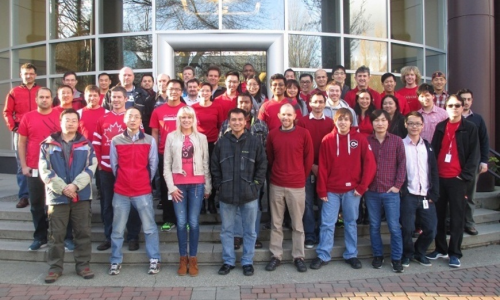
How do you know if a job posting is legit? I have figured out a few ways to decipher and decode job postings after having applied to over 100 jobs. Here are some tips.
Do Your Research!
Glassdoor is an awesome website that features reviews from current and former employees of a company or organization and this includes reviews which point out whether a job is a so-called scam.
For example, one marketing company I applied to received a ton of negative reviews. Not only were the reviews negative, but they were also mentioning how the job was a scam and not at all as the job description people applied. Another time I used Glassdoor is when I applied to a non-profit organization, in which some current employees mentioned how it was a door-to-door marketing scheme rather than a legit non-for-profit.
All in all, you have to really dig into the company’s history. It is also just good practice to research a company or organization before applying to a job with them. Most people do research prior to the interview but it’s important to research before applying so you don’t waste your valuable time.
Choose the Right Job Board
The marketing company I mentioned above published their job posting on a very well known and generally trusted job board. However, despite the job board’s popularity and reputation, this scam was still able to sneak itself into the website. Sometimes, the thing that seems the most legit is not and, amazingly, something that may seem like a scam is actually legit.
For example, my Vocational Rehabilitation Counselor recommended Craigslist to me specifically to search for non-profit sector jobs. Craigslist may seem like a sketchy place to look for jobs but most job sites require that a company or organization pay a fee in order to post a job opening and most non-profits do not have that kind of money. Therefore, a lot of non-profit organizations post job openings on Craigslist because it is free to post there.
Get Advice From Friends and Family and your Mentors
When I applied to a screenwriting position with what was purportedly a small but successful company, I had my doubts about its legitimacy. I first asked my pastor to which she said that having a business background from before she went into ministry, the company’s business practices were questionable. First of all, she mentioned that it was the CEO who interviewed me which is uncommon. The CEO also kept me around when a new person entered the office to be interviewed and we were applying to two completely different positions. Lastly, my pastor mentioned that the fact that the company won’t pay me until the movie is sold is sketchy. So, I got a second opinion.
My supervisor, at the time, had worked in the film industry and so her advice was really great. She said that it was normal for film companies to not pay their staff until a movie or television show is sold. However, she noticed a big red flag when I showed her the messages that were in the group chat for the CEO and staff. The CEO basically exploded in anger when one of the staff asked for a contract chastising the staff member that he should be more trusting. My supervisor said this; “we’re all friends here” mentality was unprofessional. I still have the CEO on my Facebook friends list but am not associated with the company anymore. Overall, it is important to get sound advice from people you trust.
So there you have it. These are the tips I have for finding the perfectly legit job you have been looking for. Go forth and conquer the job market!
Beyond the Blog
-
Read Jien Hilario's full series, I am Able: from Art to Advocacy.
-
To find out how to connect with careers that you are curious about, contact Career Services
-
For tips about personal and professional development while you are a student at SFU sign up for Career Services Newsletter















